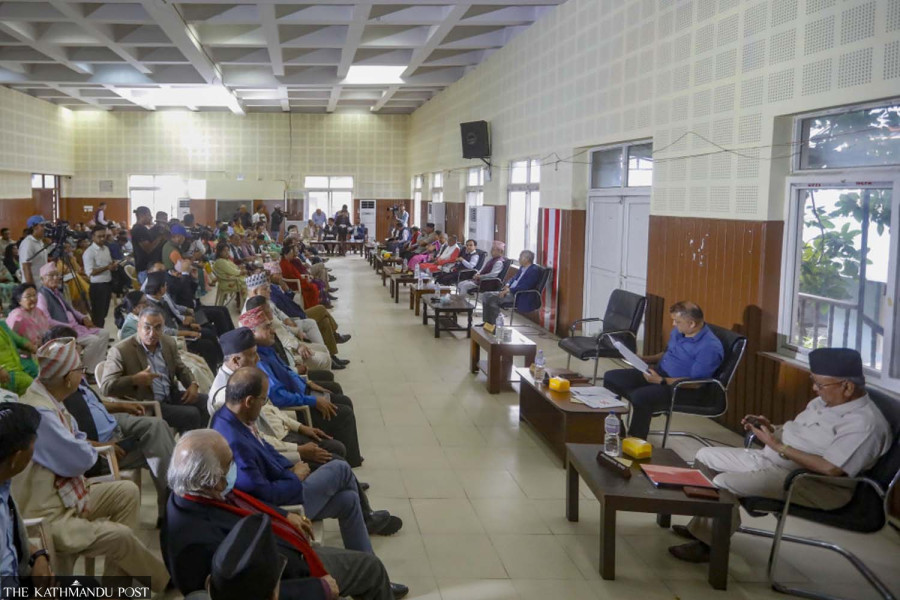Editorial
Disorderly Congress
The NC establishment faction has little interest in considering a change in leadership and direction.
After weeks of rollercoaster rides reporting on two major corruption scandals—fake Bhutanese refugees and Lalita Niwas—Nepali journalists and their audience alike are now on to a bit more uplifting news cycle: Central Committee meeting of the Nepali Congress. The meeting, which began on Tuesday, has had a pretty good start: General Secretary Gagan Thapa proposed a year-long work plan to rejuvenate the party. His plan puts great emphasis on attracting youths, for instance, by organising functions like literature festivals and memorial events. Activities like these, Thapa suggested, would help induct over half a million members into the party.
But that is going to be no cakewalk at a time when the established parties are seeing a mass exodus of their members. The rise of newer outfits like the Rastriya Swatantra Party has given the youth the confidence that they do not need to stick to the traditional parties. The main opposition CPN-UML’s recent loss of hundreds of thousands of members suggests established parties losing ground to newer ones is going to be a pan-national phenomenon. And forget about septuagenarians of the establishment, leaders in their forties and fifties, including the likes of Gagan Thapa and Bishwa Prakash Sharma, are fast losing steam as leaders much younger and more vocal than them are emerging in other parties.
There is no alternative to reimagining the Congress considering the great internal strife and the challenges from outside. It is already getting late for the party to take a new direction, and perhaps that can happen only when it has a new leadership. The General Secretary duo seems to be in a hurry, and rightly so, to change the top leadership before the next party convention.
What is startling is that at a time when even the young and promising leaders are facing an identity crisis, the older generation leaders still want to cling on to power both in party and government. The former anti-establishment force led by Deuba has now become the establishment, and is engaged in the same restrictive theatrics that it fought against decades ago when the likes of Girija Prasad Koirala called the shots in the NC. In doing so, they not only risk becoming the most despised figures within the party and beyond, but could also do great, permanent harm to the party’s image. And if initial discussions are anything to go by, the establishment within the Nepali Congress has little interest in considering a change in leadership and direction. This is evident in the party’s reluctance to take a firm and sensible stand of removing its senior leader Bal Krishna Khand, who has been implicated in the Bhutanese refugee scam, from all duties.
Notwithstanding the sweet talk about democracy and constitutionalism, Congress leaders across the spectrum seem to show no real interest in suspending Khand, who is facing trial on corruption charges. The establishment seems to want to protect its clique at all cost. And the fact that the angry young men and women in the party have failed to get party biggies to take any decision on Khand shows they too have a long way to go before their grandiloquence has weight within the Nepali Congress.




 13.12°C Kathmandu
13.12°C Kathmandu














